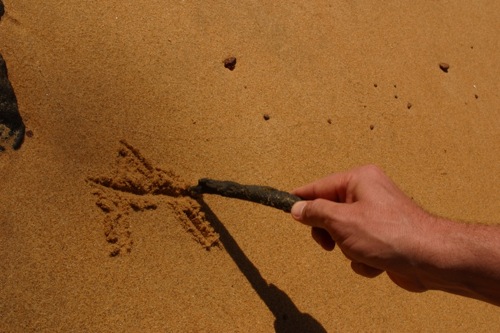Jesus bent down and started writing on the ground with his finger. (John 8:6)

Have you ever wondered what Jesus was writing?
Well you are not the first. From the very earliest days of the Church, preachers have asked this very question.
St. Jerome says he was writing down the sins of the accusers. St. Bede says he wrote down the 10 Commandments. St. Augustine said that he wrote on the ground indicating that the names of these men were to be written in earth, not in Heaven, where the names of the saints are written.
And in our own time, have a look round the internet and you will find preachers and commentators saying similar things.
But all of them seem to making a particular assumption - that what Jesus wrote down had some impact on the accusers. In writing their names, or the commandments, he was shaming and embarrassing them.
I’m not so sure. This is the only time in the Gospels we hear of Jesus writing. We know he could read, but perhaps he hardly ever wrote - there would be little need for him to. And why should he be writing names or words: perhaps he was doodling, reflecting, meditating - not sending a message which had been forgotten by the time the story was written.
There are other striking, conflicting elements in this story: between the gang of men who make their accusations, and the solitary woman whose sin was with some unnamed man; between the stones which these men were ready to hurl, and the dust in which Jesus wrote.
They are contrasts between the strong and the weak, the substantial and the insubstantial, the powerful and the powerless - and yet they are the same: stones become dust, man and woman sinned together, all fall short of the glory of God.
And Jesus - in calling the bluff of the hypocrites - by actions rather than words shames the accusers and saves the accused.
----
The image is from Preschools4All


